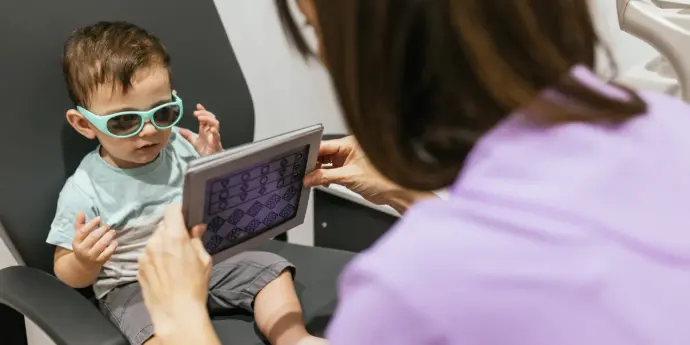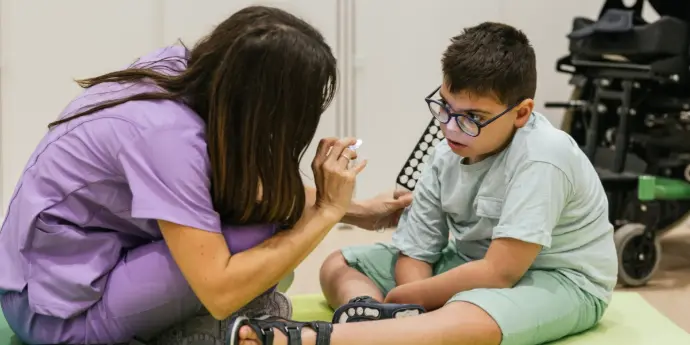Optometric Evaluation
As optometrists working under the behavioral model, we conduct comprehensive evaluations of visual information processing, assessing the effectiveness of the system at the functional level (acuity, focus, eye coordination, etc.), also compensating for refractive errors if necessary (myopia, hyperopia, and astigmatism), evaluating the development of the visual system from the beginning of life, working on prevention, and addressing the visoperceptive aspect if needed, in order to discover if there are any interferences in vision that may affect that person's potential, and if so, to treat them with optometric visual therapy and other tools, such as filters, special lenses, etc., in order to improve the comfort and visual quality necessary for daily life, whether at school, at work, in sports, etc.
The different skills that we evaluate within the optometric assessment of visual information processing are as follows:
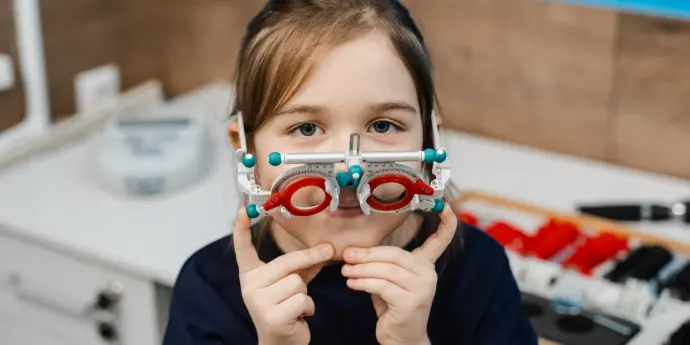
Assessment of visual effectiveness
- Visual acuity: We assess the ability to see clearly at distance and near, known as vision (or seeing 100%).
- Refractive status: Assesses the presence of myopia, hyperopia, and astigmatism.
- Oculomotor skills: The ability to move the eyes accurately and smoothly is assessed, including smooth pursuits, fixation stability, saccades, as well as the integrity of the eye muscles.
- Accommodative skills: We assess the ability to shift focus from far to near and vice versa, as well as the ability to maintain focus on near for the duration of the task.
- Binocular vision: we assess the ability to use both eyes at the same time, integrating the image from both eyes into a single image at the brain level.
- Depth perception or stereopsis: it assesses the ability to see in 3D, which allows us to see in depth, perceive relief, and calculate distances.
- Peripheral vision: It assesses the ability to perceive what is happening on the sides while focusing on a central task. A useful skill for driving, playing sports, or simply being aware of your surroundings.
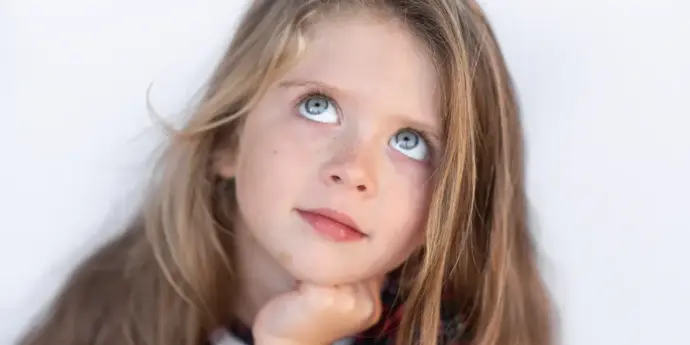
Visuoperceptive assessment
- Visual discrimination: Ability to differentiate shapes, sizes, and colors.
- Visual memory: Ability to remember what is seen, whether in the short term or long term.
- Figure-ground visual: Distinguishing an object from its background.
- Visual constancy: Recognition of objects regardless of changes in size, position, or context.
- Spatial relationships: Perception of the position of objects in space and their relationship to each other.
- Visual closure: Ability to complete an image from partial information.
Depending on the patient's medical history, the results of the visual efficacy and perception assessment, it may be necessary to conduct a more specific evaluation in other areas such as motor development.
There is a direct relationship between vision and motor development, which is why for optometrists like us who specialize in developmental optometry, it is very important to make some assessments at this level.
The level of motor development achieved is evaluated, both gross and fine, and how it coordinates with the development of the visual system.
It is evaluated how body movements are coordinated with visual information.
Spatial vision
skills
The analysis focuses on how the patient understands and manages concepts such as left-right, up-down, and their relationship with objects in the surrounding space. This is an essential skill for integrating both internal and external spatial coordinates.
Visuomotor integration
skills
The coordination between what the eyes see and the movements of the body, especially the hands, is studied. This is essential for activities such as writing, cutting, or playing sports.
Visual-auditory integration
skills
The patient is assessed on how they combine what they see with what they hear, which is important for activities such as reading aloud or following visual and auditory instructions at the same time.
Conducting this type of evaluation helps to gain a more comprehensive understanding of how the patient's visual system influences their development and their relationship with the environment, in order to seek the best solution if needed.
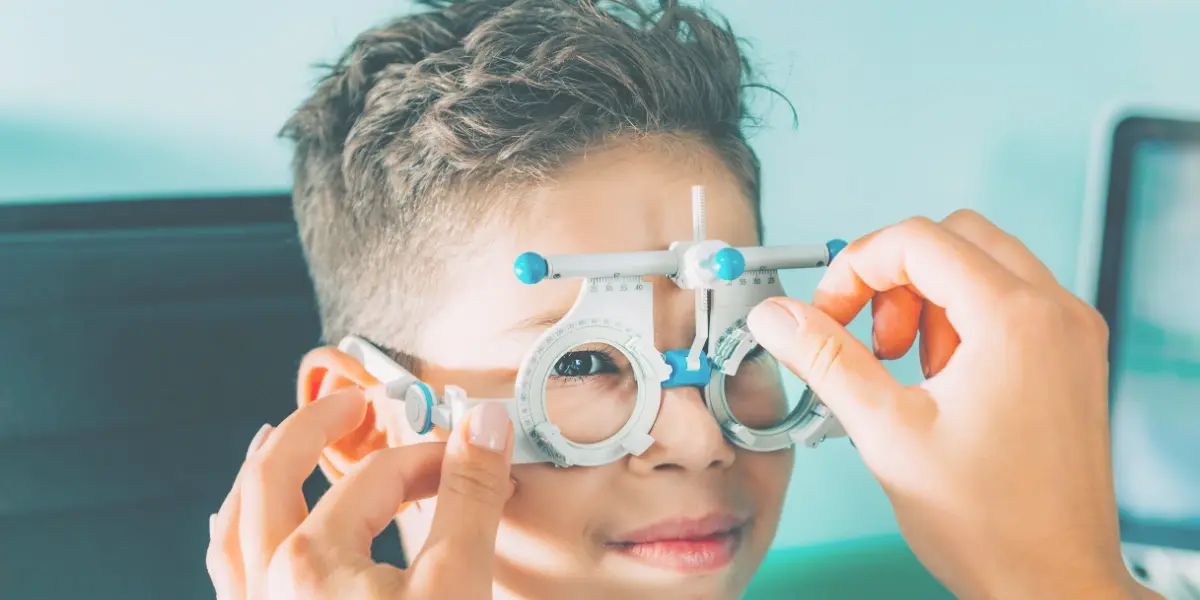
Directory
Access our directory and find a specialist in Vision Therapy and Rehabilitation from SIODERV near you.
